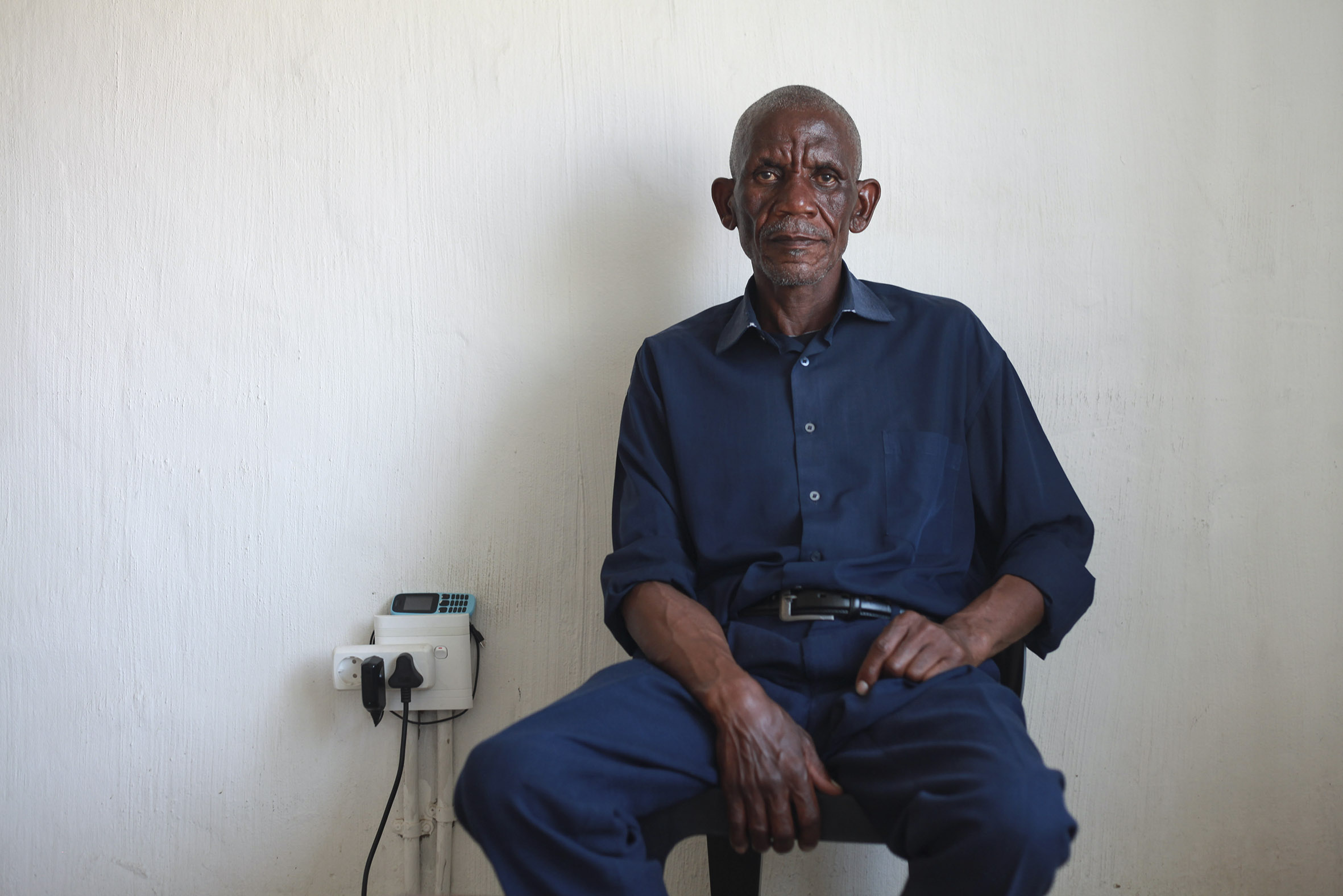Fleurhof housing no safe haven for the elderly
The development, touted as one of South Africa’s premier integrated residential projects, is failing to live up to the expectations of residents, who complain about shoddy workmanship.
Author:
27 June 2022

“Everything here is wet – the floor, the blanket that is close to the wall and even the curtain,” says a distressed Cecilia Louw, 60. She has motor neurone disease, a crippling and incurable condition, and is lying in bed, her body wrapped in a blanket, a heater failing to lessen the cold in her room. “Life is very tough, I’m always in bed. I can’t go out,” she adds. “I came here with my daughter who is married with two kids and my sister so they could look after me.”
Louw, who is originally from Alexandra, is one of the elderly people who was recently allocated a flat in Fleurhof, a large mixed-housing development in Roodepoort, southwest of Johannesburg. She had been on the waiting list for state housing since 1996. More than two million people countrywide applied for RDP houses at the time, but through widespread corruption most applicants never got them. Gauteng alone now has a backlog of more than 1.2 million houses, and more impoverished people migrating to the province for economic reasons means the number is unlikely to go down.
Louw was proud when she finally had a place of her own, but that feeling has been replaced by hopelessness and frustration, which have compounded her ill health. Since the former domestic worker was diagnosed with motor neurone disease in 2004, progressive muscle weakness has forced her to use a wheelchair and she also suffers from heart failure, asthma, diabetes and high blood pressure. “This house, especially this room, is always cold, in all seasons. It feels like there is water under these flats,” she says.
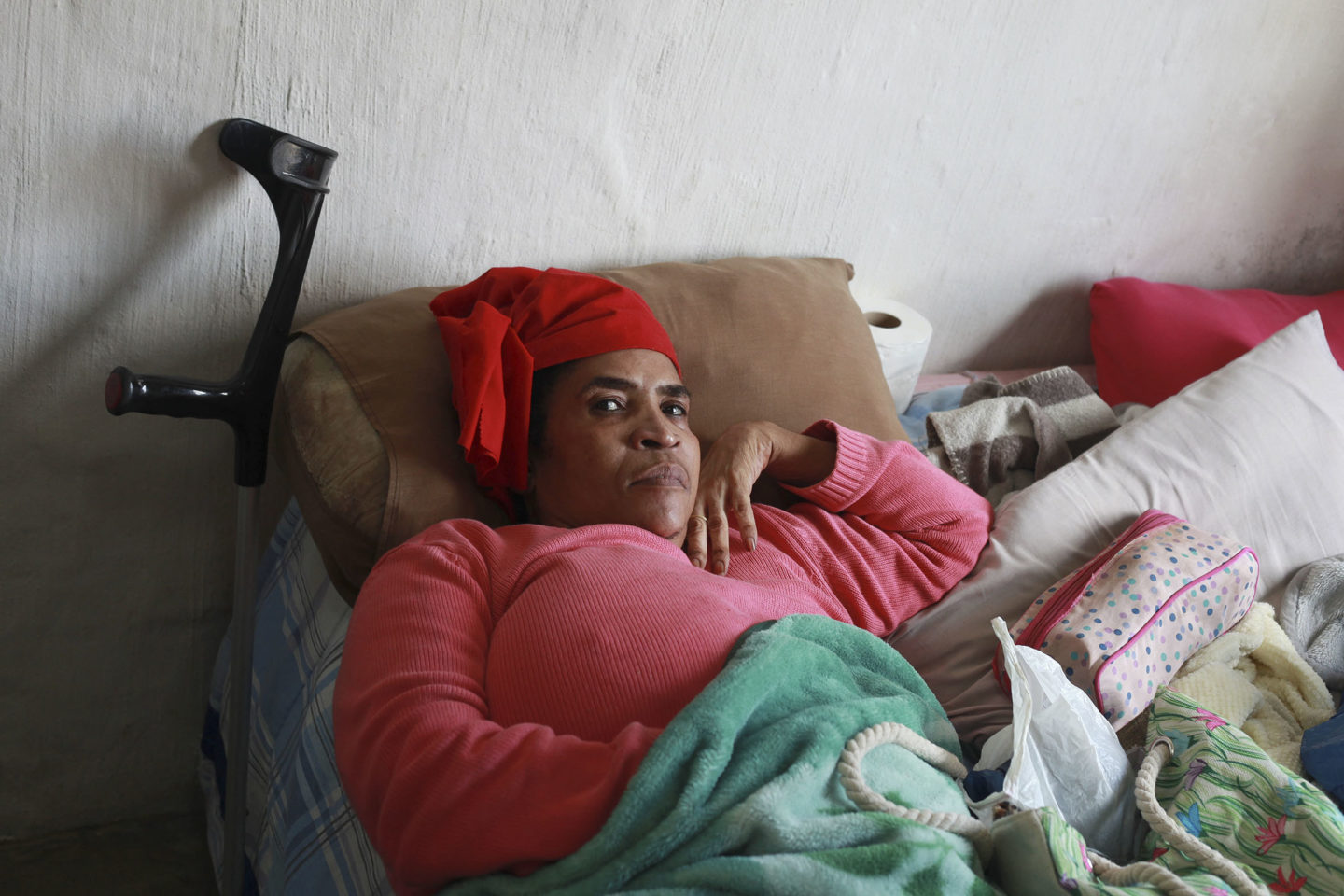

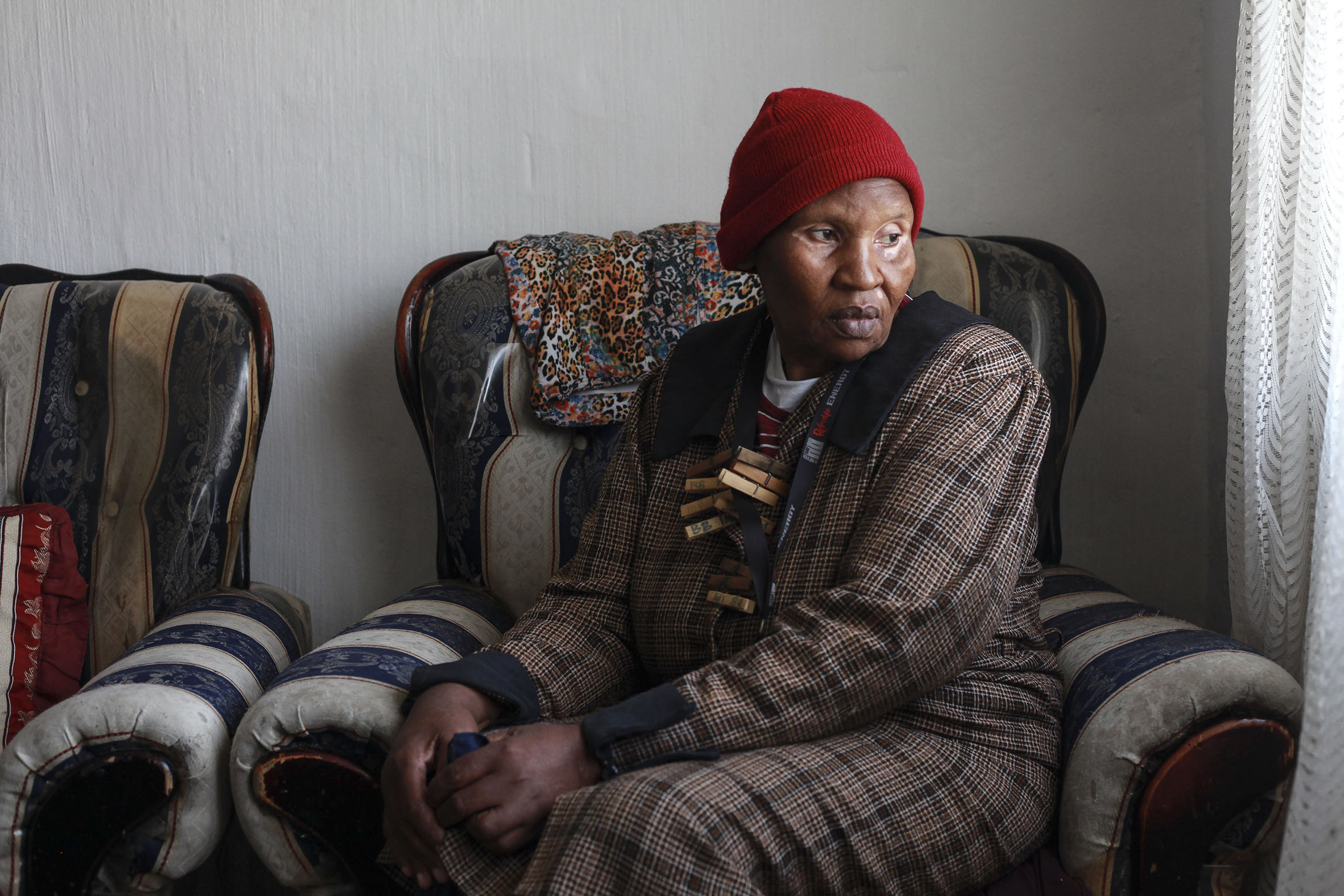

The problem started during heavy rainfall in April. When the Fleurhof residents approached Calgro M3, the company responsible for the development in partnership with the City of Johannesburg, to voice their concern about the constantly wet flats, they were allegedly told to open the windows when they cook to avoid the units “sweating”.
“Fleurhof is built in close proximity to a water course, therefore you will encounter groundwater,” says Neo Goba, the City’s housing department spokesperson. The storm water drain that was constructed in 2015 in Meadowlands to channel water away from Fleurhof was vandalised, causing the water to dam, he adds.
“When they came to take our luggage last year in October, I thought we were going to Lufhereng as we were previously told. Instead they took us to Fleurhof,” says Berlina Buthelezi, 63. After moving into her modest two-bedroom unit that also has a bathroom, open-plan kitchen and lounge, she started getting the flu often and her legs swelled. Her two grandchildren who lived with her and her husband Zain decided to move back to the family home in Mofolo to avoid getting sick. “I initially did not know what was causing the illness, but I later realised that the floor and windows were wet all the time,” Buthelezi says, her face a testament to the struggles that she has endured.
She got married in her 20s and lived with her in-laws for almost 40 years. “My time is over, I’m old now. What can I be excited for? I live in this place because I have no option.”
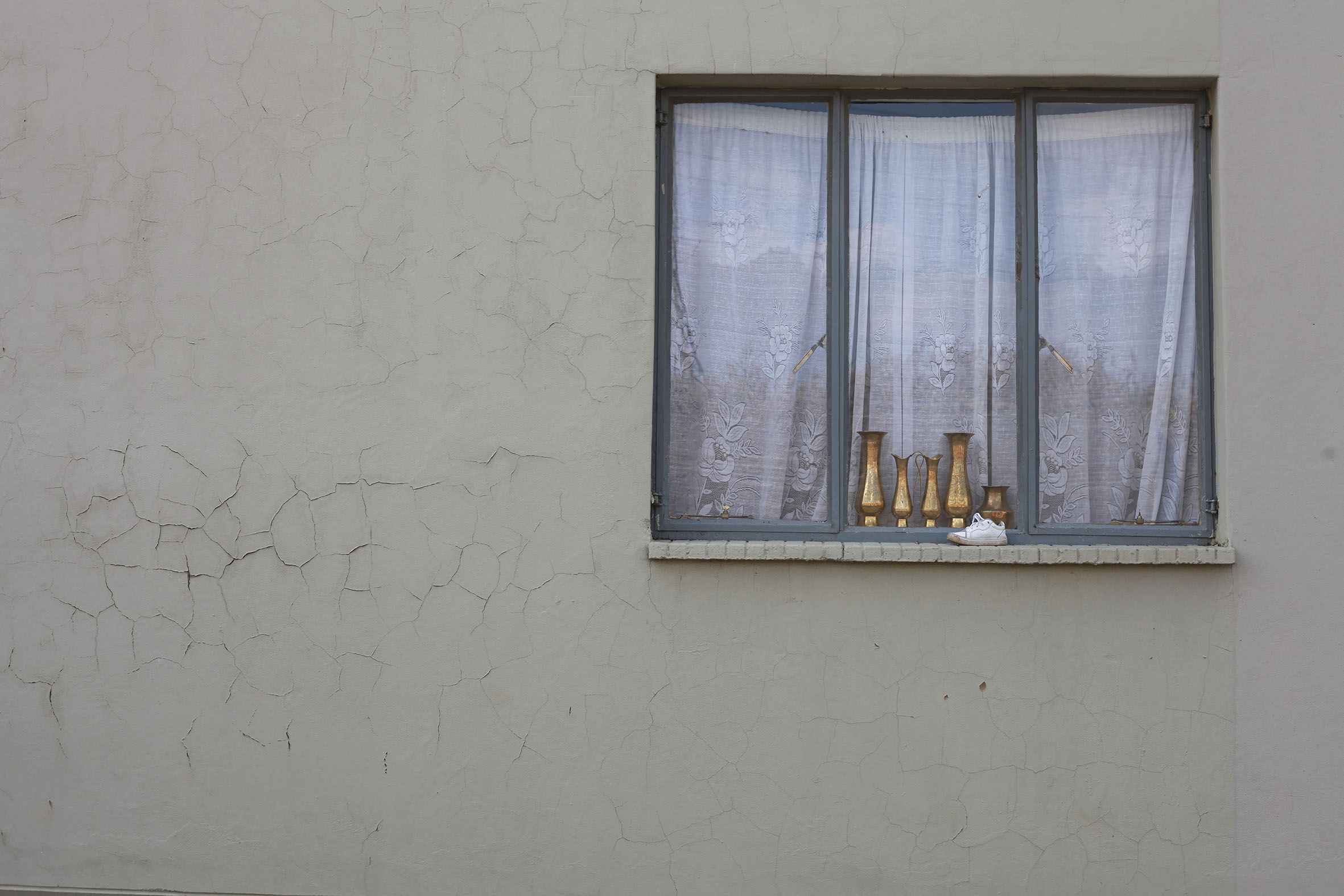

Hazardous conditions
In 2020, New Frame covered the shameful eviction of about 2 000 people who were left in the cold and shot at by the police at Fleurhof. The desperate occupants claimed then that the units had been standing empty since their completion in 2015.
Fleurhof, comprising 10 411 units in total, was built on 440 hectares of land and is one of the largest integrated housing development projects in Gauteng. Today the units have cracks in the walls and in some blocks the roof tiles and gutters are missing, causing water leakages. The grass is poorly kept and residents share a few washing lines to dry their clothes. Hazardous open holes with electric cables have carelessly been left without barricades around them. Geysers hang dangerously in bathrooms and many are said to be faulty. Steel kitchen sinks with taps askew sometimes fall while being used.
During a meeting that is organised by concerned members of the housing committee in a parking lot, residents also share their apprehension about other issues such as the area’s isolation. There are no schools, shops or medical clinics nearby, which forces them to pay dearly for transport to such facilities. “The government is using us as security guards to protect these empty units from being invaded,” says an angry elderly man.
They also complain about the blackouts that last up to five days owing to a lack of proper electricity infrastructure. Though there are generators that temporarily supply power to the units, they are not enough and the residents are unsure who pays for their costly running and maintenance.
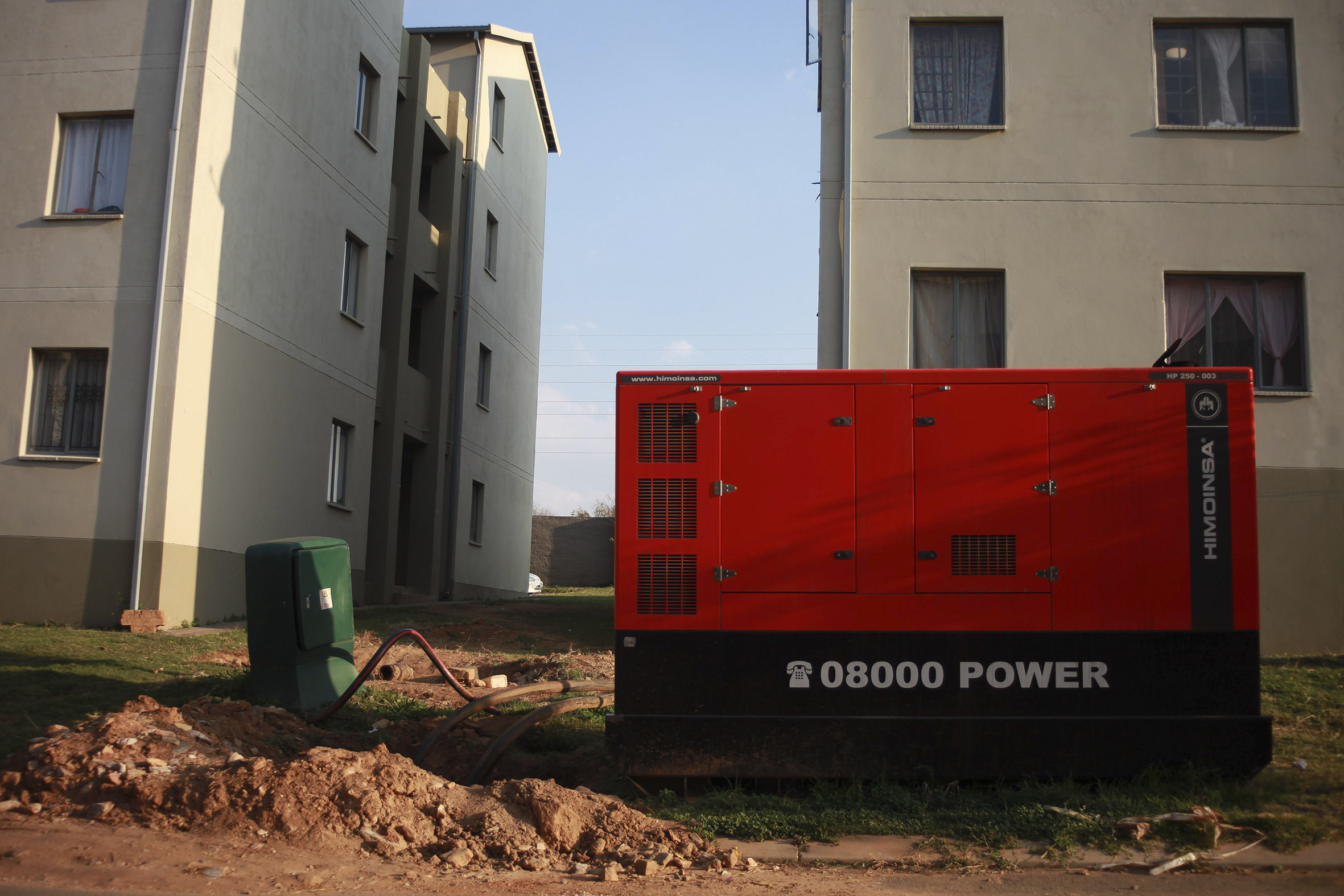

“One residential block has 35 to 37 units. It is impossible for a generator to satisfy the heavy demand,” says a young man who is looking after his mother’s unit. “Calgro is making its problem our problem and when we complain it tells us that we are misusing the generator’s fuel. We are now in the winter season. Old people have chronic diseases and they will switch on their heaters.”
At Calgro’s Fleurhof satellite office, the security guards are told not to allow the media inside the premises. A man named Martin tells them over the phone that the company will not answer any questions.
Goba admits that the department is aware of the problems at Fleurhof, but says Calgro is optimising the generators while it waits for City Power to complete the electricity infrastructure. He refuses to answer questions about whether the problems are caused by the department owing Calgro money.
Former security guard Themba Silekwa, 62, lives alone in a sparsely furnished unit. When he applied for a house in 1996, his eldest son was nine years old. He is now 35. Silekwa’s wife and four children moved back home to the Eastern Cape years ago when they realised that they could not live as a family living in a rented back room. “My spirit is no longer here,” he says, longing for his family whom he only visits occasionally. Silekwa was hoping to get a house with a yard so he could plant vegetables, but now he spends most of his time taking walks “to keep fit and sane”.
